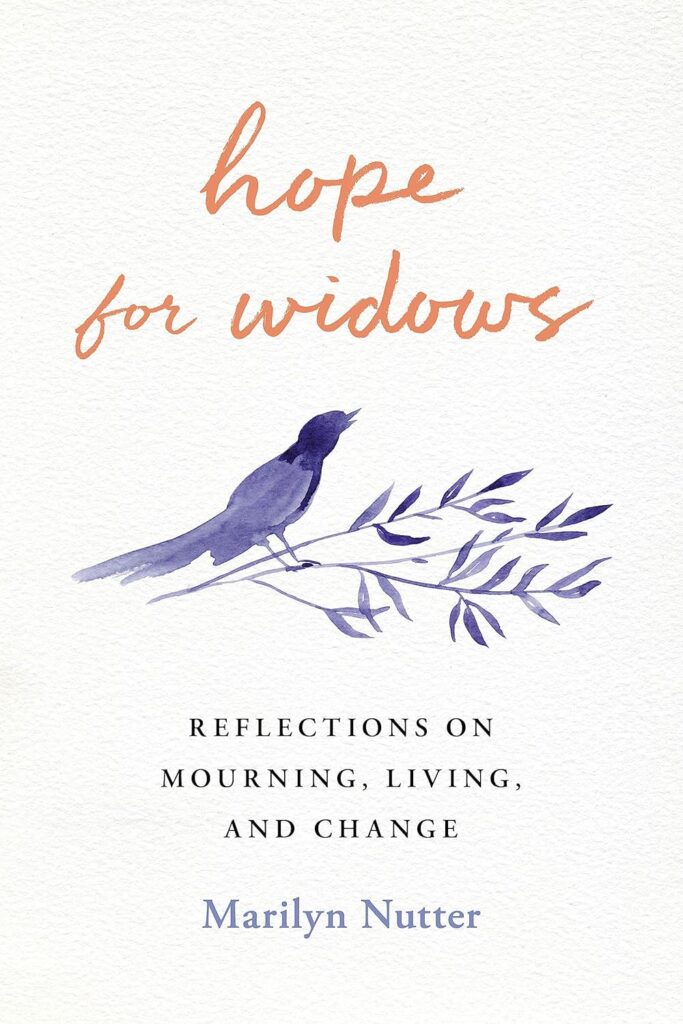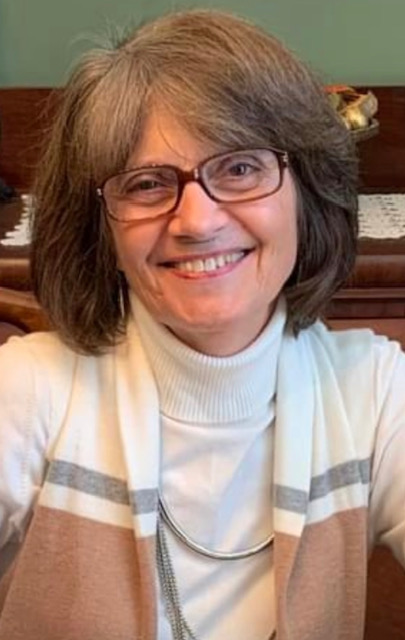Today I’d like to introduce my friend Marilyn Nutter. Marilyn has walked a path many of you have walked—the path of grief. Today she shares with us how to navigate the holidays when you’re grieving. But Marilyn’s help doesn’t stop here, because grief doesn’t limit itself to the holidays—it’s the unwanted gift that keeps on giving. Scroll to the bottom to read more about her newest book, Hope for Widows, releasing soon, but available for pre-order now. Grab a copy for yourself or someone you love who’s wrestling with grief and struggling to find the new normal after loss.
When Grief and Loss Wreck Your Holiday Season
By Marilyn Nutter
Christmas cards with family photos, invitations to holiday parties, and cookie baking- fun, food, and festivity mark the season. Faces erupt with delight when a knock at the door signals arrival of family who travel distances to be together at Christmas. We love meet-ups -that is- until we don’t.
Grief and loss during the holiday season are meet-ups that are unplanned, uninvited, and unwelcome. They not only make an appearance, but stay for an extended visit.
Grief and holidays awkwardly occupy the same space, irrespective of a holiday. When a widow signs a single name on a card to her grandchildren, loss is front and center. Sounds of Christmas music echo in stores, energizing and encouraging shoppers to “get into the Christmas spirit,” but for grievers, the melodies and lyrics are harsh and painful. The empty chair at the dinner table and fewer gifts under the tree announce, “he isn’t here.” Decorations and dazzling lights, rather than sparkle, become a glare.
How do grievers manage and even find joy when we meet holidays?
My husband suffered a fatal heart attack two days before Christmas while we were out west with family. Less than twenty-four hours later, the calendar proclaimed Christmas Eve. The next day Christmas morning appeared, right on schedule. For the sake of grandchildren ages five and seven, and by God’s grace, we went through the motions of opening gifts. As we look back at images frozen in print, we held beautifully wrapped gifts, but we were numb. Our eyes told the story of sadness. The red eyes remained, untouched by filters.
Through my experiences meeting holidays now for eleven years, I want to offer hope that grief changes shape and intensity. You won’t always feel the way you do today. The person you love remains absent, but the pain is less and tears are fewer. God wires us this way. We don’t remain numb. We still miss our person, but move forward in life in our individual timing.
Just as we are uniquely created, and our grief is as individual as snowflakes, our approach to holidays is personal. Our needs and personalities are different, family traditions, dynamics, and ways of observing holidays are different. Love languages- how we offer and receive love with friends and family- are different. There is no one size fits all in living, grief, or holidays. We cannot compare our holiday or grief experiences with anyone.
So the question comes, how will I choose to observe, remember, and yes, even celebrate? In my grief and mourning, and by drawing from experiences of friends who have also lost a spouse, these surfaced in our conversations.
11 Simple Ways to Cope
- Share your thoughts, preferences, and expectations with the people you’ll be spending holidays with. They can’t read your mind. Perhaps this year you’d like everyone at your house, or you want to go away to a cabin, or light a candle of remembrance at your dining room table, or you don’t want a tree, or…
- Give yourself permission to think and wait before accepting invitations Unless you know your answer is yes or no, plan to say, “Let me get back to you.” What will it mean if you go or if you don’t? Are you ready to attend that particular event?
- Learn to recognize your triggers. Is it healthy for you this year to avoid Christmas movies, certain gatherings, or certain events?
- Give yourself a peaceful environment. Let light into your house or burn a fragrant candle. What suits you better- soft instrumental music or just quiet?
- Find a widowed friend who understands and is further along in her grief journey. Meet for coffee or a meal and share what you’re thinking and how you’re doing during the season.
- Take care of yourself with good nutrition, walks, and sleep.
- If a parking lot and a crowded mall send you to tears, simplify with on-line shopping or gift cards.
- Speak your husband’s name and share a holiday memory so others know you want to remember and talk about him.
- Cry. We’ve been designed by God to cry in sorrow. The shortest verse in the Bible is “Jesus wept.” He wept at the death of his friend Lazarus. Psalm 56:8 tells us God knows our sorrows, records our tears, and stores them in bottles. Crying is a natural response to grief.
- Ask for help. Do you need a ride somewhere, bins taken down from the attic, or packages mailed?
- Be intentionally grateful in small ways: the morning sunrise, a call from a friend, strength to do a task. Practicing gratitude in simple things adds to our big picture of healing.
How will you spend these holidays while you grieve and mourn? What will you do, when will you do it, and why? Only you can decide your best fit because grief is unique and personal. Acknowledge the present. If we are honest, holidays are different from year to year. When children need naps, Christmas day has a different schedule. Teens want to sleep in on Christmas morning and gift opening is delayed. Families are scattered, loved ones marry and relocate or share holidays with in-laws. And so, with the loss of a loved one and the empty chair at Christmas, we embrace one more change and acknowledge it’s a painful and permanent one. But as each year evolves and becomes different, it won’t always be as hard as it is today.
This last thought is the most important:
Remember,
The steadfast love of the LORD never ceases; his mercies never come to an end; they are new every morning; great is your faithfulness.
Lamentations 3:22-23 ESV
Read the Christmas story with fresh eyes. Have a devotional quiet time for encouragement and hope looking for God’s promises of comfort and love. Journal your responses. These practices last beyond the holiday season. When you turn the calendar to January 1, every Scripture and biblical truth remains and will carry you through the coming year.

If Marilyn’s devotion spoke to you, you’ll want to check out her newest book, Hope for Widows. Here’s a description:
Hope for Widows is a valuable source of encouragement and comfort written for widows guiding them in loss to hope. Marilyn offers 65 brief readings that cover widows’ universal experiences with empathy and poignant honesty. She applies Scripture to grief and mourning and looks with transparency at how widowhood dramatically changes a woman’s life. Amid the readings are opportunities to journal treasured memories, reflect on the additional losses that accompany the death of a spouse, and appreciate unexpected gifts.
This book presents the truth of Scripture to combat lies you may be prone to believe in your newly single life, shares quotes related to loss, offers prayers from the Bible, and provides exercises to build trust by looking at the character of God from A to Z. The book is also written for those who know widows, providing insight describing the changes and challenges a widow faces. Read this book on your own or find topics helpful for discussion in women’s ministries or grief support groups. Though nothing can fix this irreversible loss, Hope for Widows offers connections in your grief, guiding you to see hope, grace, and camaraderie on an unfamiliar path.



Lori, thank you for sharing Marilyn’s post which helps us better understand our own grief and that of others. Marilyn, your wise words help us see the holiday challenges through the eyes of those who grieve at this time of year. You give us permission to change traditions, as well as 11 practical ways to cope. Best of all, you offer hope and remind us God’s mercies are new every single day. Thank you.
I’ll be ordering multiple copies as gifts for members of our Naomi and Ruth group at church. Having learned of Mr. Nutter from Ms. Marilyn some years ago, he’s high on my list of folks to meet in heaven one day. Thank you for sharing these wonderful tips on how we can help those who God chose to leave behind for a bit longer. Am so looking forward to your book ma’am. God’s blessings and thank you for sharing your heart with others.